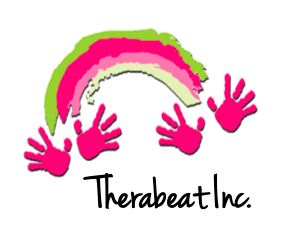Since the beginning of time music has shown its soothing effects. Take a look at David playing the harp for the King to help sooth his soul. Music can help heal a person who is grieving if the music is used in a structured therapeutic way.
Grief has six stages that a person passes through. It is important to note that the stages may not go in the exact order as listed. Stage one is always denial. “Denial buys time needed to blunt the initial impact of the shattered dream.” (Moses, 2004) Most times a person is grieving the loss of a dream, whether it is the loss of a dream that you will have more time with the one you love or the loss of a dream you once had for yourself or someone you love. The next stage is anxiety; once a dream has been lost the person has to make a major life change. In today’s world the society makes anxiety an inappropriate response; however anxiety is an appropriate reaction to a major life change. The next stage is fear; “fear is a warning that alarms the person to seriousness of the internal changes that are demanded.” (Moses, 2004) Fear is a common stage that comes along with anxiety; after feeling anxiety, fear of the unknown comes. Guilt is another state of grief. It is a normal feeling to feel guilty about the life you have. Guilt can be expressed because people believe that good things happen to good people and bad things happen to bad people. (Moses, 2004) The next stage is depression “characterized by profound and painful sobbing”. (Moses, 2004) The final stage is anger; the question “why me” is often asked during this state. This stage is typically directed toward one person.
Music therapy sessions can have structure while remaining open to the emotions and vulnerability of the person experiencing the grief. The music therapist can used many techniques as tools to help with the grieving process. Improvisation is a music therapy technique that has a small amount of structure but allows for a large amount of emotional expression. Songwriting is another music therapy technique; this technique can vary in structure. The therapist can take a song that already has a tune and replace the words with some that the client wants or the therapist can write an original song with the client. The therapist uses the existing relationship the client has with music, preferred music or favorite genres.
These techniques can help with anyone who is going through the grieving process such as: someone who lost a loved one, someone who lost the ability of a body part, or someone who has had a close family member receive a serious diagnosis. All of these scenarios have someone who has lost an idea of how their life would look and are going through the stages of grief. Music therapy can uses the stages of grief paired with music to help work through the stages in a non-threatening environment.
-Dana LaValley, Music Therapy Intern
McFerran, K. (2011). Music Therapy with Bereaved Youth: Expressing Grief and Feeling
Better. Prevention Researcher, 18(3), 17-20.
Moses, K. (2004). Impact of childhood disability: the parents struggle. Pent Forum. Retrieved
from: http://www.pent.ca.gov/beh/dis/parentstruggle_DK.pdf

